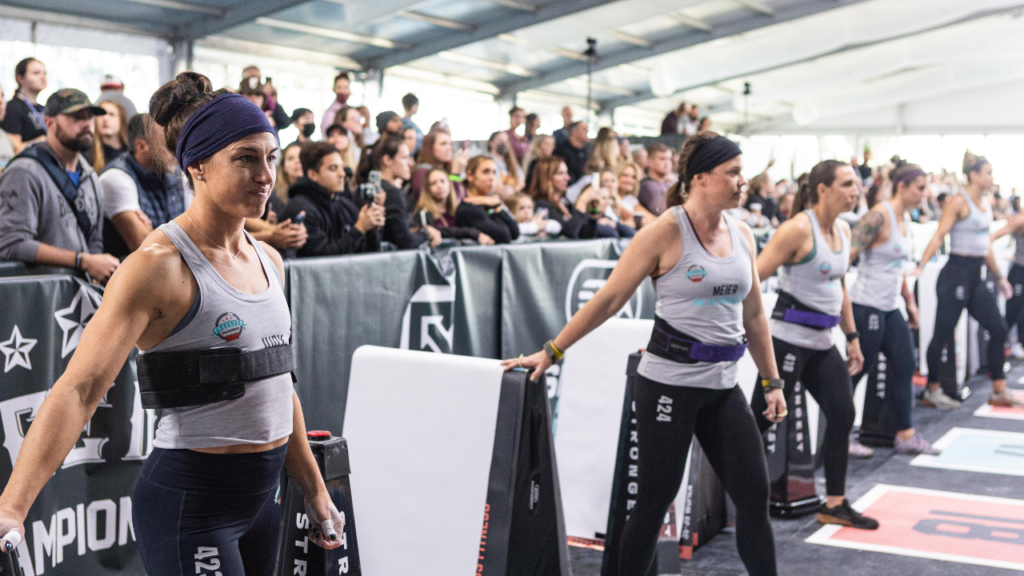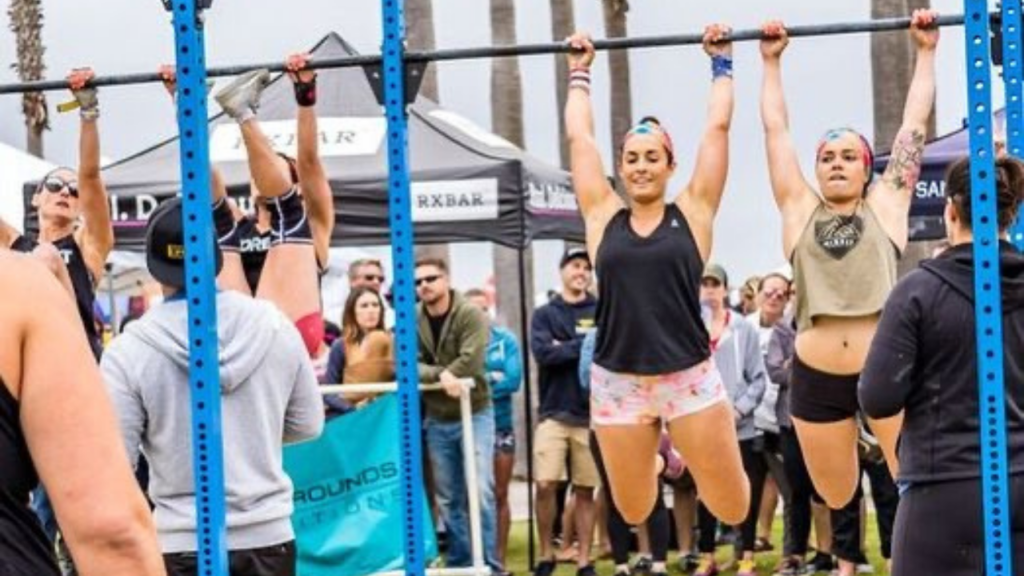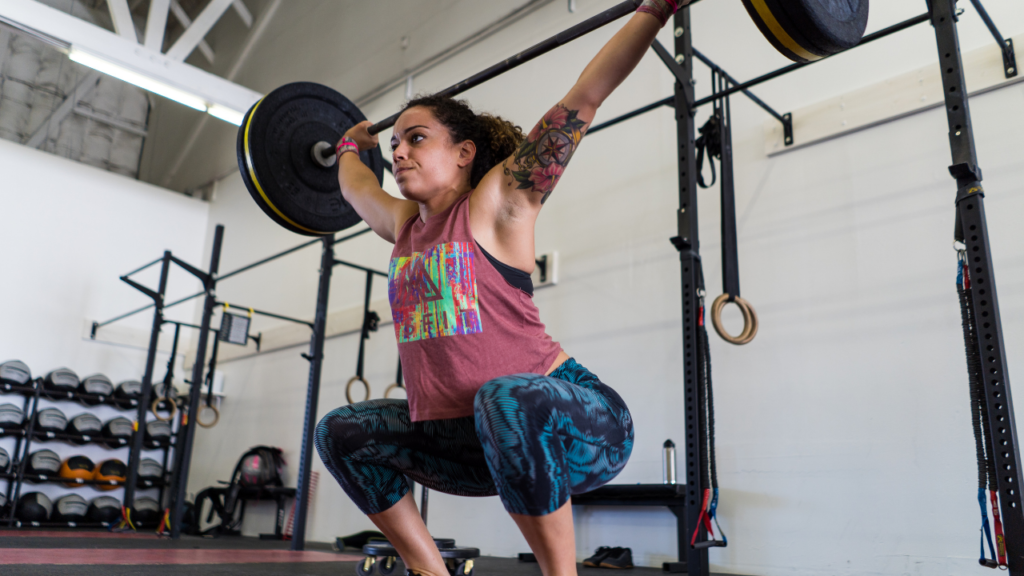
Ready to fuel your day to crush what competition day will bring? Let’s DO IT!
First and foremost, THE MOST important rule of thumb- never try anything new on competition day! This is not the day to test out the protein sample you got while walking on the vendor floor, or the preworkout your friend gave you.
Your energy and nerves are probably already increased/sensitized, and trying new things can wreak HAVOC on your system- ESPECIALLY your digestive system!
Speaking of digestive system, you might find that you spend more time than normal in the bathroom on competition days or before qualifier workouts. This is very common.
In the “flight or fight” response of stress, our bodies shuttle most of our blood to the things that need them most- like our hearts, lungs, and extremities (legs and arms).
Mammals also have a physiological response to “dump” anything that doesn’t need to be addressed ASAP – including the food in our bellies and the things our bodies were in the process of digesting.
This, combined with an increase in epinephrine and adrenaline (two neurotransmitters designed to help blood pump fast while increasing alertness and reaction time) and your stomach and intestines have been SHUT DOWN until the “running away from the lion” moment is over.

Which leads into the next piece of advice- plan on easily to digest, gentle things to eat. This is not the time for steak and broccoli between workouts.
You do want to have some whole foods, but you’re looking for foods that digest easily and won’t take a lot of TIME to digest. Typically it takes your stomach 90 minutes to 2 hours to completely process something. However, when nerves are high this can slow down that digestion time. In addition, high protein, high fat, and high fiber foods will take longer to digest (and the more you eat the slower the process).
Here is what your day might look like (beginning with breakfast):
*You will need to adjust this based on your schedule of events
1. Assume your first event begins at 9am. Do and eat what you typically would before an AM training session.
Rise around 7am, have your normal cup of coffee and whatever your normal pre-training routine is.
Shoot for 60-80g of carbs (bagel, waffles, cereal, toast with jam, bananas), 10-20g of fat (egg yolks, butter, milk) and 30-40g of protein (eggs, chicken sausage, yogurt, milk, etc).
2. Eat a small meal of something carb heavy right after your first event.
This could be a bar and a banana, a cup of white rice with a small amount of shredded chicken breast, yogurt with honey.
The goal is to replenish your glycogen stores (the body’s storage form of carbs) while also preparing yourself for the next event.
Base how much food to eat on hunger, when your next event is happening, and how long/how intense that next event will be. Avoid eating over 20g of fat and keep protein to 20-40g at most. This is also a good opportunity to sip on a scoop of whey or take some Essential Amino Acids.
3. Repeat this system above based on how many events you have and how much time you have between events.
If you have a window of 2 plus hours, make yourself eat an actual meal.
This could be as basic as chicken breast, white rice, and mixed veggies (shoot for lower fiber veggies like salad mix, green beans, or zucchini), or you could have a turkey burger with some potato chips, or some ground turkey with white rice and veggies. You just want to make sure it’s not exceptionally “heavy” or high in fat (like don’t eat lasagna or pizza!)

Lastly, play around with all of this if you can BEFORE your competition!
Try different meal options and what you think will be appetizing when you’re got a nervous stomach.
Things like peanut butter and jelly sandwiches, cheese sticks, crackers and cheese, low fat/fat free yogurt, cucumbers and low fat ranch, gummy bears, breakfast burritos with low fat ingredients, are all foods you can consider on comp day.
This day is about getting in enough calories, managing a stressed digestive system, making sure your body has what it needs to fuel your events and recover BETWEEN events, and ensure that you have a steady stream of energy throughout the entire day!
